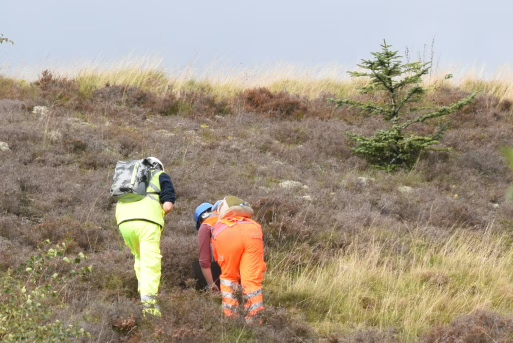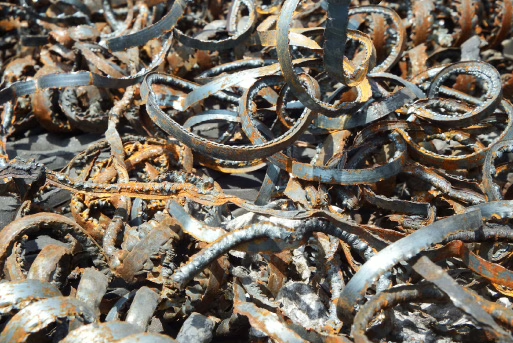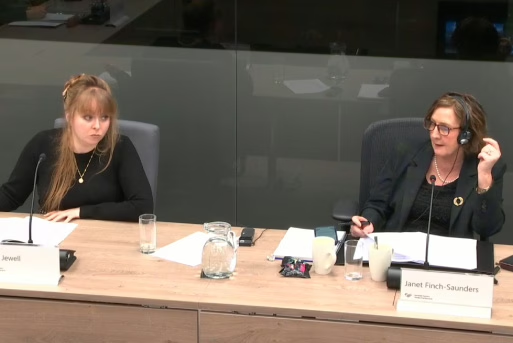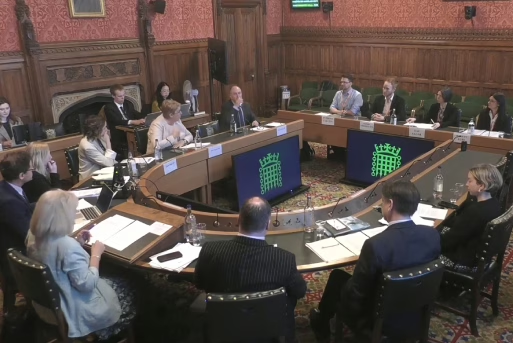Through the Wayuu-led NGO Nación Wayuu, indigenous Wayuu elders and community leaders are gathering in a 'Permanent Assembly' - an ongoing dialogue, which can involve peaceful action to demand justice from the coal company Cerrejón, which operates Latin America's biggest coal mine in the northernmost state of Colombia, La Guajira.
This is a powerful step by communities next to the railway line where open-top carriages take coal across the state to the port. They were not included in the recent UN investigation but also suffer devestating impacts.
Cerrejón is owned by three mining multinationals who are all listed on the London Stock Exchange: Anglo American, Glencore, and BHP. They have recently been ordered to stop expanding the mine and as a result Anglo American and Glencore are now suing the Colombian Government.



(English Translation. Spanish here)
According to their legal and constitutional rights, the Traditional Authorities of the Indigenous Wayuu Movement (located in the municipalities of Maicao, are Manaure and Uribia, ancestral guardians of the territories which have been robbed and desecrated by the train track belonging to Cerrejón Limited) inform the national and international public that from 1st June 2021 they will declare a PERMANENT ASSEMBLY* for the following reasons:
For more than 40 years, the indigenous territories located in the municipality of Albania, Maicao, Manaure and Uribia, were desecrated and divided by the construction of the train line belonging to the Cerrejón company, which gave passage to an immense iron-clad long-tailed animal: a train.
The passage of this immense animal changed the lives of the Wayuu people, who now are feeling death which initially came to them slowly, and now is gathering pace. The most affected are women and children, but also the workers who go to the mine.
The situation is so critical that recently, the UN urged the mine to suspend operations in the municipality of Barrancas, near to the Wayuu reservation of Provincial, for reasons of pollution, water scarcity, and the prevention of transmission of Covid-19 in the communities who live there.
The UN High Commission in Human Rights urged the suspension of some of Cerrejón's opencast coal mine operations, located in La Guajira, Northern Colombia.
UN experts insisted the pollution that the mine produced has caused serious damage to the health of the indigenous Wayuu community who reside in this region, bordering on Venezuela.
David Boyd, UN special rapporteur for Human Rights and the Environment, said “at least during the pandemic, the operations in the Tajo Patilla site near to the Provincial reservation should be suspended until they can demonstrate that it is safe.”
He added that the Cerrejón mine had not done enough to comply with the orders of the Colombian authorities, which in December demanded the company improve air quality and limit the damage to the area's inhabitants.
According to UN commission experts, the residents suffer headaches, breathing and nasal problems, dry coughs, burning eyes and blurred vision as a consequence of the exploitation of the Cerrejón mine.
The pollution produced by Cerrejón does not only affect the communities near to the Tajo Patilla or the Provincial reservation, but also the indigenous communities, ancestral guardians of the territories located along the length of the train line and the banks of the Rancheria River. In this second wave of infections in this pandemic that threatens to exterminate humanity, these communities have been seriously affected, leaving countless people dead and many more infected, but this does not matter to the Cerrejon company, who continue their mining operation regardless.
It has been five years since the sentence was handed down which ordered urgent action to benefit the indigenous people of La Guajira, but this judicial order has not been followed through.
The justice system has placed at least 17 sanctions on Cerrejón Coal Limited for the effects that opencast coal mining has brought to the indigenous Wayuu people who live in the immediate vicinity of the mine in La Guajira. The last decision was handed down by the Constitutional Court on 13th December 2016, which included an order to compensate indigenous Wayuu communities for the severe environmental, social and cultural damage, but to this day they have offered nothing but a half-hearted semblance of compliance with this sentence.
As ancestral guardians of territory exploited by the company Cerrejón, we demand the following:
1. Suspend the train operation which transports coal to Puerto Bolivar at the weekends for 24 hours each day (Saturday and Sunday)
2. Urgently reinitiate dialogues which were unilaterally suspended by Cerrejón under the false pretext of the pandemic.
3. Comply strictly with the Constitutional Court order T-704/16
This communication is signed on 1st June 2021 by the Traditional Wayuu authorities, ancestral guardians of this territory.
*Language note: Permanent Assembly refers to an ongoing or recurring gathering to protest and/or engage in dialogue to further a campaign
We will be taking actions in solidarity with Nación Wayuu, and the affected communities. To be involved in this, and other, actions against coal, sign up to our mailing list.
You can read more about Cerrejón's devestating impact on communities in the region in this recent UN report. London Mining Network has a lot of information about communities fighting back against the mine.

On July 1st, 2025, CAN organised drop-in session at the Senedd, spotlighting the urgent need for action on Wales’ coal legacy issues. The event saw strong cross-party engagement, with Members of the Senedd (MSs) from Labour, Plaid Cymru, the Conservatives, and the Liberal Democrats in attendance…

We’re actively setting the record straight when fake news about coal is spread through public figures, social media, or the press. The rise of populist politics and politicians tend to drive statements that are don’t entirely match the evidence, but may win them some votes…

Explore the landscape via the images below, drag around the viewpoints and go full-screen for the immersive experience. This is what the 58,000 residents of Merthyr Tydfil face every day…and with a new plan by mining company, Merthyr (South Wales) Ltd, to evade its responsibility to restore…

This information seeks to clarify which tips are included in ERI Ltd’s proposal to mine and then flatten certain coal tips in Caerphilly. The tips selected appear to be on the basis of which would be most profitable to mine of the ‘waste coal’ they contain…

The Welsh Government’s Deputy First Minister, in his response to the CCEIC’s Stage 1 Report, admits the “Bill does not prevent the extraction or burning of coal” but adds “I cannot envisage a scenario in which the extraction and burning of coal will arise as a result of the Bill”…

The direct use of coal as a feedstock (not just energy) is particularly significant in China, where coal is used extensively in coal to gasification plants to produce chemicals such as methanol, ammonia, and…

This nature was photographed around 50 metres from the edge of the Glan Lash opencast coal mine in Ammanford, South Wales. It shows the thriving ecosystems surrounding the Glan Lash opencast coal mine which has remained dormant since 2019…

In February, CAN gave oral testimony to the Climate Change, Energy, and Infrastructure Committee (CCEIC) on the Disused Mine and Quarry Tips (Wales) Bill…

Coal Action Network was invited to attend Westminster where we gave evidence to the Welsh Affairs Committee in their inquiry about the environmental and economic legacy of Wales’ industrial past, alongside Friends of the Earth Cymru. This inquiry was opened in…